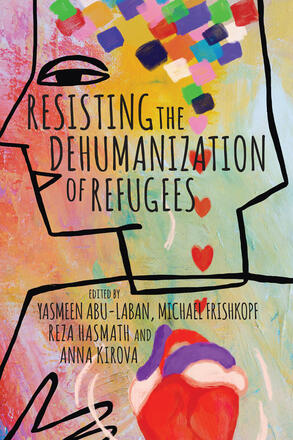
Resisting the Dehumanization of Refugees
Categories: Social Sciences, Immigration, Emigration & Transnationalism, Political Science, Public & Social Policy
Publisher: Athabasca University Press Show Edition Details
Ebook (PDF) : 9781771994118, 420 pages, May 2024
Ebook (EPUB) : 9781771994125, 420 pages, May 2024
- Contains a table of contents that provides direct access to all chapters of the text via links.
- Landmarks provide quick access to main parts of the book.
- Single logical reading order.
- All non-decorative content supports reading without sight.
- Language tagging provided.
- Index provides links to item references.
- Next heading / previous heading, next chapter / previous chapter navigation is enabled.
- Use of high contrast between foreground and background audio.
- A page list enables users to coordinate their reading with a statically paginated version.
- Use of high contrast between text and background color.
- WCAG level AA
- This publication claims to meet accepted accessibility standards.
- ARIA roles included.
- Short alternative textual descriptions.
- Appearance of the text and page layout can be modified according to the capabilities of the reading system (font family and font size, spaces between paragraphs, sentences, words, and letters, as well as color of background and text).
- WCAG v2.1
Description
Refugees face distinct challenges and are often subject to dehumanization by politicians, media, and the public. In this context, Resisting the Dehumanization of Refugees provides urgent insights and policy-relevant perspectives to improve refugees’ social well-being and integration. Taking a transdisciplinary approach, scholars from the social sciences, arts, and humanities, alongside practitioners and refugees, explore what it means to experience dehumanization. They consider how refugees’ experiences of dehumanization inform both epistemological and practical approaches to humanizing (or re-humanizing) refugees before, during, and after resettlement. By addressing these important issues, contributors marshall rich and multidimensional responses that draw upon our shared humanity and reveal new possibilities for change.